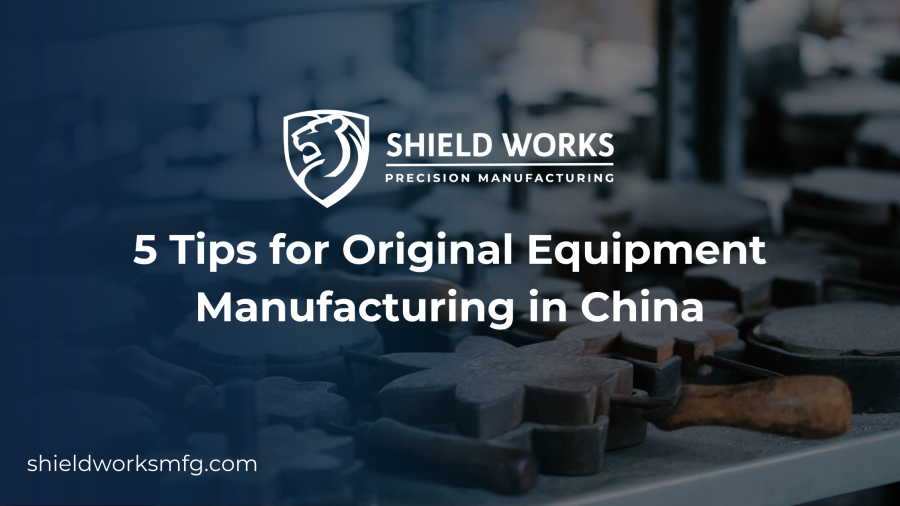5 Tips for Original Equipment Manufacturing

Original Equipment Manufacturing (OEM) refers to the production of equipment made to the specifications of another company or manufacturer. This business model has been applied by companies around the world and is very common in China’s manufacturing industry, due to its extremely competitive market and high-quality products at reasonable prices. However, there are several key factors that are unique to the OEM model that you must be aware of before beginning your venture into China’s Original Equipment Manufacturing market.
Original Equipment Manufacturer (OEM)
If you are new to importing and plan to start your own business, then Original Equipment Manufacturer (OEM) is a good place to start. OEM refers to products produced by other companies that are rebranded or sold under another company’s name. For example, if you own a clothing line, you could consider approaching different apparel companies and getting their apparels made with your branding on them and then sell them yourself. When looking at starting an OEM business it’s important that all parties understand what is expected of each other and how everything will work together in order to make sure it ends up as a positive experience for everyone involved.
Finding a Good Supplier
Finding a good supplier is probably one of your biggest challenges. There are literally thousands of manufacturers and suppliers out there, each with its own website, reputation, capabilities and pricing. The problem is that you can’t get to know every single one, even if you try. So what do you do? Find an original equipment manufacturer (OEM) with whom you can work long-term. This way, once your first orders start rolling in, they’ll be able to follow up on it without ever bothering you. Just make sure they’re easy to contact by email or the chat app everyone uses there, WeChat, to be specific—you’ll need them to be responsive because customer satisfaction is key when things go wrong or when there’s something that needs fixing or changing on the spot.
Factories vs. OEMs
While it’s important to understand how both factories and OEMs operate, each has its own purpose. Factories will typically manufacture products to order based on a minimum order quantity (MOQ). That is, they will produce your product based on however many pieces you purchase; with that said, there is no guarantee of quality. OEMs (Original Equipment Manufacturers) are different because they have a brand or intellectual property that gives them more autonomy over their manufacturing decisions; as such, OEMS will have stringent processes in place for ensuring quality control. With that said, choosing between factories and OEMs can come down to where your manufacturing budget aligns best with your business goals.
Outsourcing is never simple
Researching, scouting, and getting to know potential manufacturers and vendors is time-consuming. And when it comes time to find someone you can trust, it’s difficult to know where to start. At last year’s CES technology trade show in Las Vegas, there was a firm presented as a go-to manufacturer of devices that look like iPads but cost far less. But when we investigated further, we found that almost everything about them was false—they weren’t made by Apple; they didn’t even look like real iPads. The products were unlicensed knockoffs sold through some big retail chains in the US—which said nothing about them being fake or inexpensive.
Dealing with hiccups
A manufacturing hiccup can be anything from an underperforming supplier to a supply chain delay, but it can severely disrupt your production schedule. What do you do if there’s some kind of snag? Your first step is to identify what exactly has gone wrong. If you need help, ask questions and get as much information as possible so that you can resolve it quickly. Ask yourself: What is your problem really? Is there just one issue or several issues adding up? Is it something that you can solve on your own or is it something that needs additional resources and support? Next, figure out how important solving this problem right now really is—and decide what resources are required to get things back on track.
It’s a common misconception that manufacturing in China is expensive. In fact, it’s quite affordable, especially when you compare it to labor and material costs in other developed countries. But we understand your concerns regarding culture, communication and IP protection, as we, C2W, are a one-stop manufacturing solution provider founded and managed by British and based in China, with our own production facility and in-house bilingual engineers. If you are interested in getting to know more about how we can be of help with your product manufacturing while protecting your IP, please feel free to contact us.
